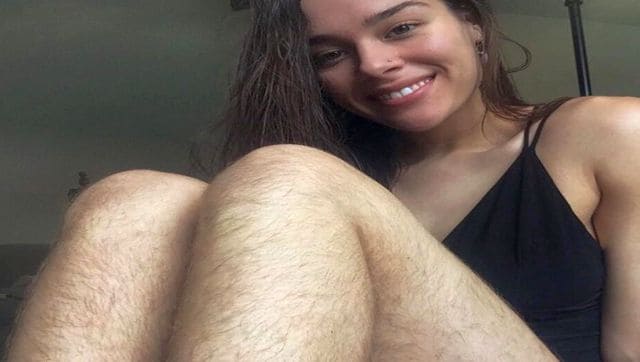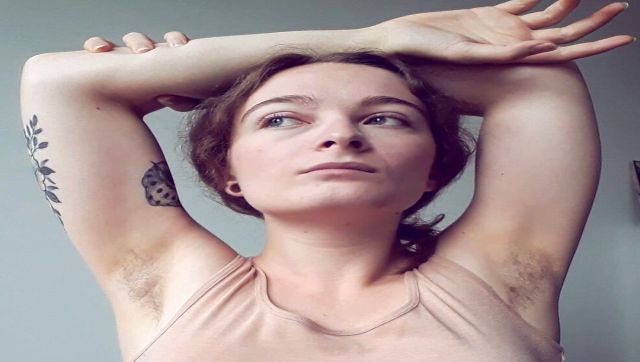It's Januhairy: Why women are forgoing waxing, shaving their body hair this month
It's Januhairy: Why women are forgoing waxing, shaving their body hair this month

The first month of the year – January – is about resolutions and transformation. It’s about change. While some people sign up for gym memberships, others abstain from alcohol as a part of Dry January.
But what if we tell you that some women are also growing out their body hair and giving their razors, epilators and tweezers a break this month as part of a larger campaign called Januhairy.
As women grow their hair, we go to the root of this movement and find out what exactly is Januhairy and what’s the purpose behind it.
Origins of Januhairy
Januahairy started as a social campaign where women were asked to go ‘au naturale’ and skip the waxing, threading and laser appointments. It is similar to Movember, which encourages men to grow moustaches to raise awareness of men’s health issues, such as prostate cancer, testicular cancer, and men’s suicide.
The idea behind Januhairy is Laura Jackson, a woman studying drama at the University of Exeter in the United Kingdom. She explained that in 2018, she started growing out her body hair for a performance as part of her drama degree and it opened her eyes to the taboo of body hair for women.
However, while she got used to her body hair, there were many around her who didn’t understand why she wasn’t shaving. And it was that feeling that translated into the origins of Januhairy. She took to her Instagram account and shared a picture of her unshaven underarms and urged other women from across the globe to join in.
Now six years later, Januhairy has become a worldwide phenomenon.
In fact, the campaign’s official Instagram account boasts of over 42,000 followers and women post various pictures of their body with hair.
Many women who have joined the campaign believe it offers them a freedom they have never felt before. For others, it is a way of defining their feminism. As one of the women wrote, “I believe in my choice of shaving, When I Want to, Not Because: You think I’m disgusting . I know a woman can be #sexy with #hairylegs or without. Also men are sexy with #hair or #nohair.”

Reasoning behind Januhairy
But what purpose does Januhairy serve? According to Laura Jackson, the brainchild of the campaign, Januhairy is about liberation of women’s bodies. In a 2021 interview to Metro, she had said, “Januhairy is liberating because it gets you thinking about the way you treat your body and why. “Maybe soon we’ll be at a point where people can just do what they want in relation to body hair and we won’t even need to talk about it. That would be something.”
She further added, “Society seems to be behaving as if the natural hair we grow on our bodies is unattractive and distasteful. We are so used to removing our body hair that we are becoming unfamiliar with our authentic selves.”
And this statement does hold true. Professor Rebecca Herzig, author of Plucked: A History of Hair Removal, notes that “more than 99 per cent of American women voluntarily remove their hair, and more than 85 per cent do so regularly, even daily”.
A 2021 YouGov survey found that 59 per cent of Britons considered female armpit hair “unattractive,” with men and women largely holding the same view, at 57 per cent and 61 per cent respectively.
If these numbers don’t explain it, maybe this will put it in perspective. In 2019, the global hair removal products market size was valued at $4.01 billion and is expected to reach $4.94 billion in the next three years – 2027.

Women, who participate in Januhairy say it’s one way of them reclaiming their body and re-establishing beauty norms.
Even psychologist Carly Dober concurs with this view. Speaking to New Zealand Herald, she said, “Body hair has been associated with masculinity, and therefore any women who show body hair that is not socially sanctioned, they are going outside the traditionally slim ideas of what women can be.”
But as an increasing amount of women show off their body hair on social media, it sends out a powerful message because it goes against traditional beauty standards.
And some experts also note that the site of the body hair also holds different levels of acceptability. Breanne Fahs, a professor of women and gender studies at Arizona State University, told CNN, “Armpit hair continues to be labelled as the most disgusting or difficult for people to tolerate,” adding, “Underarm hair is the one that makes people really mad because it’s perceived as a greater violation of gender rules and traditional femininity than leg hair.”

Celeb support
And it seems that the notion of embracing body hair is being embraced by celebrities too. Way before Januhairy came into being, Julia Roberts sashayed on to the red carpet at the premiere of Notting Hill with underarm hair in 1999.
In recent times, other celebrities like Amandla Stenberg and Miley Cyrus have also flaunted body hair on the red carpet.
For Jackson, the ultimate aim of Januhairy is “to allow us to understand more about ourselves and from that understand each other more!”
With inputs from agencies
What's Your Reaction?



























































